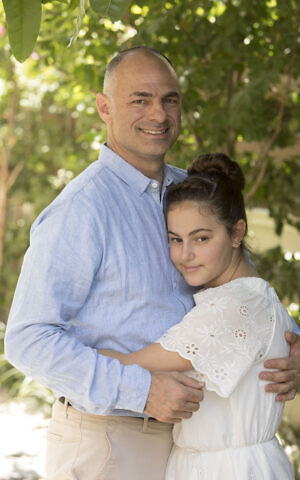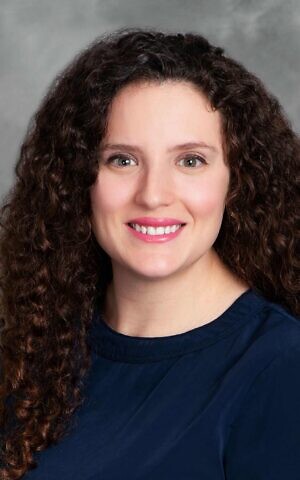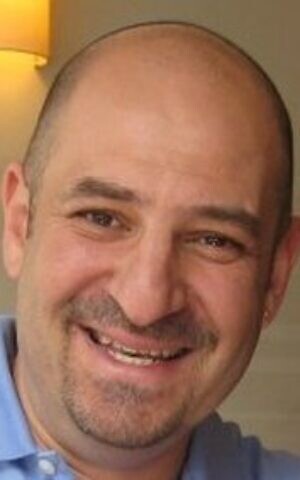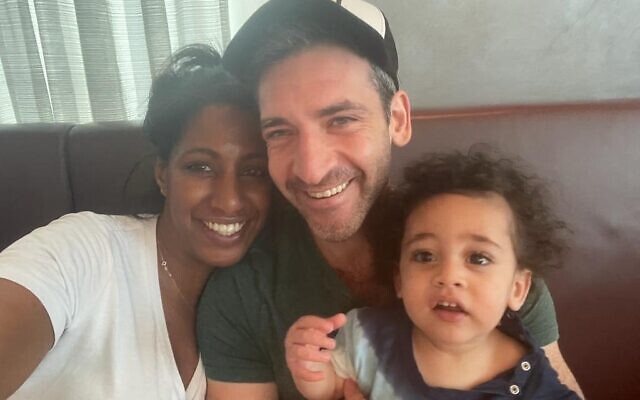Former Atlantans Living in Israel
Many are in shock and in touch with new sense of vulnerability.
Perhaps former Atlanta Rabbis Mario Karpuj and Analia Bortz said it best during a Zoom meeting with their former Congregation Or Hadash from their home in Jerusalem, “We’re safe, but we’re not okay.” They added that they have no regrets about making Aliyah four years ago.
Former Atlantan Adam Frank, also a rabbi, told the AJT, “Life here is changed forever; still there is no place I would rather be.”
Days after hundreds of Hamas terrorists penetrated the Israeli border and massacred their way into more than 20 Israeli communities, killing 1,000 soldiers and civilians – babies, Holocaust survivors, whole families – Israelis remained shocked by the deadly incursion, the worst the country has experienced in 50 years. But they are not shocked into paralysis. On the contrary, all are contributing to help the country move forward, however angry and depressed they are.
“You see the worst and the best of people,” Bortz said to more than 120 people in the virtual meeting that was arranged just three days after the astonishing attack on Israel that included thousands of rockets targeting as far away as Jerusalem. The “worst” that she mentioned were the hundreds, if not thousands, of heavily armed Hamas terrorists that managed to destroy the lauded Israeli security and infiltrate the country. Deemed a terrorist organization by Israel and the U.S., Hamas controls the Gaza Strip.
The “best” were the Israelis who, under extraordinary circumstances, immediately lined up to give blood – including her and other family members – or accumulate all kinds of supplies to bring to survivors of the attacks along Gaza who were transported to hotels along the Dead Sea and in the south to Eilat, as well as supplies for the 300,000 reserve soldiers called up for duty.

As Karpuj noted, the Israel Defense Forces normally can provide equipment and food for its soldiers but gathering everything necessary for 300,000 so quickly meant that citizens had to help as well. He offered to accept donations through Venmo or Zelle to help the soldiers. “Every penny goes straight to the soldiers,” he said, providing the link to do so.
Israelis who were less threatened by the rocket attacks collected food and clothing to deliver to the survivors who were taken to safe hotels sometimes in their pajamas due to the early morning attack and without any money. There were so many cars delivering the supplies to the hotels that the parking lots quickly filled, said Bortz. “People are taking destiny in their own arms,” she said.
The couple expressed a particular connection to residents of the kibbutzim along Gaza because, Karpuj said, many were settled by people from South America, birthplace for the two Conservative rabbis.
While incredibly saddened by the evolving news from the historic attack on Israel, the couple noted some sense of normalcy in their lives, including going to the grocery store between sirens warning of incoming rockets.
“It’s chaotic and breathtakingly sad. There’s a new sense of vulnerability and fragility,” said Bortz, “but we see people coming together.”
Some former Atlantans are more directly affected. Frank’s 19-year-old son, Nadav, had joined the paratroopers just two months earlier. According to Frank, son of Atlantans Lois and Larry Frank, “He was called back to his base on Saturday night. During the drive, Nadav broke down in tears for a moment – not out of fear, but out of pain. In that moment, my son grew 10-fold in my eyes. We are hoping that the IDF’s soldier situation is such that our son will not be needed in any kind of fighting capacity.”
But, of course, in this apparently unforeseen disaster – which many say resulted from intelligence and operational failures — no one can predict the length and severity of the war, especially with reportedly more than 150 Israelis taken forcibly into Gaza as hostages.

And the longer-term emotional toll on the country is also unpredictable. Frank’s 15-year-old daughter, Tamar, said to him, “Abba, I love Israel and I loved living here, but that was when I felt safe because of our army. I don’t feel safe anymore.”
The Frank family, along with many Atlanta families, are also distressed by the report that Hersh Goldberg-Polin was among those taken hostage after losing part of his arm to a grenade thrown by Hamas terrorists. The 23-year-old who had spent many Passovers at Ramah Darom was among those thousands of Israelis enjoying the music festival near Gaza when the Hamas infiltration started. Frank called him “one of our dear friends.”
Zach Rosenzweig, an Atlanta native who attended The Epstein School and The Weber School and worked as an AJT intern as a high school senior, make Aliyah in 2012. He lives with his wife, Yoella, and son, Ariel, in Kfar Saba in the center of the country. He said this is a “painfully dark and horrific time to be an Israeli and Jew. When you see Israelis being killed, entire families erased and know it could have been you. I think of my wife and son.”
Abba, I love Israel and I loved living here, but that was when I felt safe because of our army. I don’t feel safe anymore.
But Rosenzweig, son of Michael Rosenzweig and Shelli Bank, said there’s “incredible resolve nationally. We have no choice but to fight this, despite the grievous divisions and mistakes that led to this attack.”
When Rosenzweig served in the IDF, he was in the spokesperson unit. While there, he helped monitor social media. He is now the Israel-based representative for the U.S. organization Israel on Campus Coalition, doing the same kind of work, at the same time finishing up a PhD at Hebrew University. He said he hasn’t been called up for reserve duty yet, but he would like to be.
“This is a type of service,” speaking of his day job. “It requires monitoring what’s happening closely. There’s a lot of work involved in exposing U.S. audiences to what is happening.” He added, that as a dual citizen, he felt very inspired by President Joe Biden’s statements the last few days.
Former Atlantan Rachel Broyde, who lives in the Jerusalem neighborhood of Abu Tor, is the CEO of the Efrat Development Foundation. Efrat is a community of 3,000 families, or about 14,500 residents, of which at least 80 percent are religious. It is considered a suburb of Jerusalem although it sits outside the Green Line or in the territories referred to as either the West Bank or Judea. Her job since March is to raise funds to support the community known to be home to many immigrants from the U.S.

According to Broyde, one in every three families in Efrat has someone who has been called up to serve in the IDF. That means children are often missing a parent, or two, who are now working to protect the country. When the AJT spoke with Broyde, she had just submitted an urgent request for funding for emergency and medical supplies to a large foundation. “This one community in the U.S. needed me to send the request by the end of the day.”
Known as Keren Efrat, the foundation is raising funds to cover urgent needs in light of the war. “We are working with the army, first responders and the home front command to make sure soldiers receive the assistance they need.” It is also asking for help to cover immediate social services and mental health services for children “and the families of reservists/soldiers who are in dire need,” as well as hosting families from southern Israel. She said all donations are tax deductible in Israel and in the U.S.
Besides her husband, Broyde has a sister living in Israel, and her father, Rabbi Michael Broyde, an Emory University School of Law professor, has been there visiting since just after Yom Kippur. “It’s been very hectic and scary,” said Rachel, especially citing the fact that no one knows what will come next. “This isn’t going to be a repeat of the Six-Day War. It will be long and it’s hard to know what we’ll need.”
She said she falls asleep only when her “body at some point just passes out. People call and text me all the time.” She says she’s buoyed by the support she receives from friends in the Diaspora.
Her father has used part of his time in Israel to write his thoughts for Cross Currents, urging America’s Jews to change their attitudes toward Israel, from seeing Israel as Disneyland to seeing it as Motherland. “There are so many good things about Israel,” he told the AJT, such as the food and experiences. “There are great reasons to come here, but that’s the Disneyland approach. You leave when it starts raining.”
The Motherland approach is that “we come running in times of need. I will leave when I am ready to go. I do not want to be in the group that leaves the motherland when it starts to rain, and it is raining now. When the situation is stable, I will leave and then I will come back again as I cannot live without the motherland.”
He noted that he isn’t teaching any classes this semester at Emory.
On the day that Rabbi Broyde urged U.S. Jews to come to Israel and said, “they certainly shouldn’t cancel their planned trips,” the U.S. State Department raised its travel advisory to Level 3, asking citizens to reconsider travel to Israel.




comments